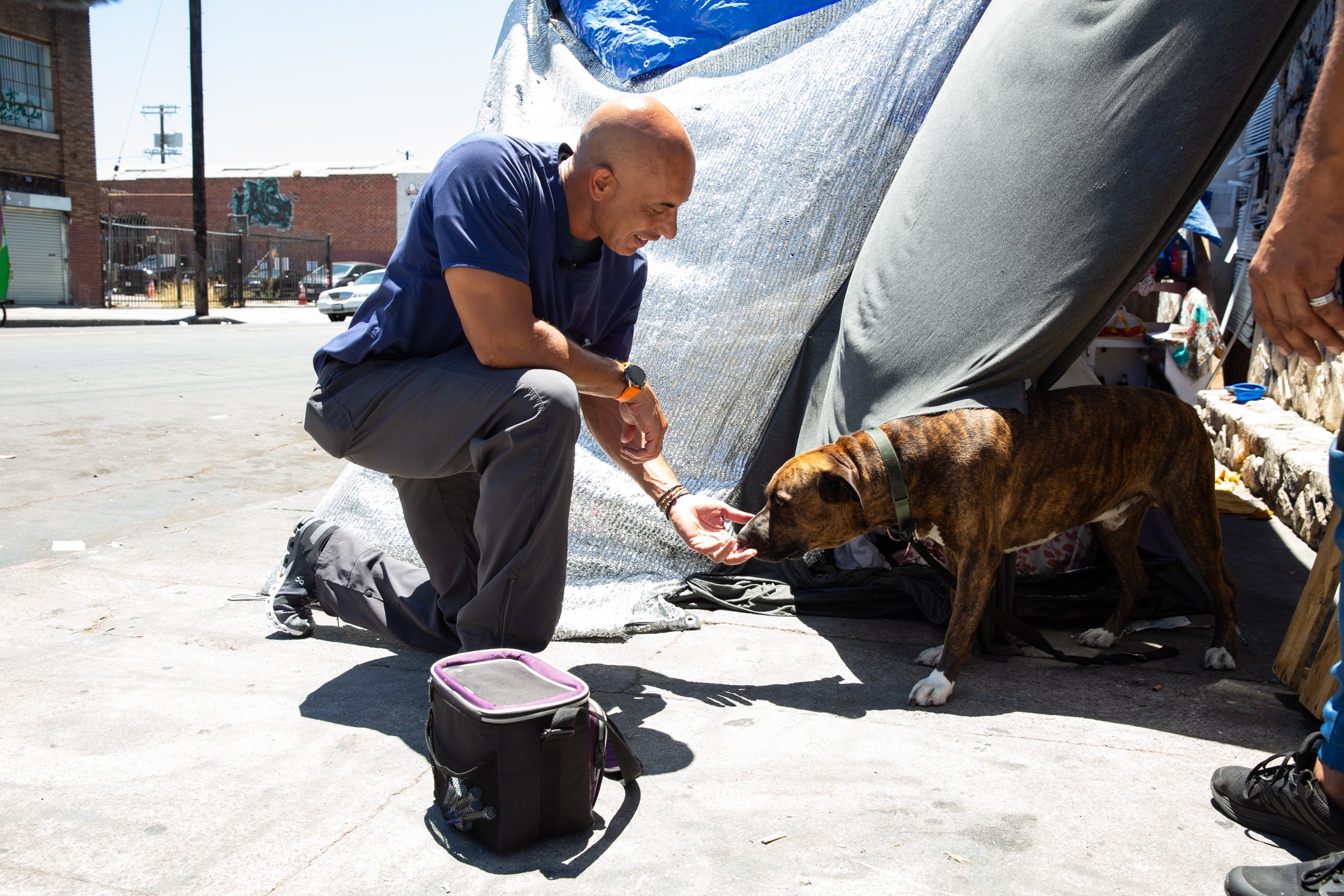

Today we’d like to introduce you to Kwane Stewart.
Alright, so thank you so much for sharing your story and insight with our readers. To kick things off, can you tell us a bit about how you got started?
I was a shelter vet during the recession, 2007-2012, in the Central Valley of California, for the first time in my career. It was an awful time to be introduced to this work and a less than ideal place. Modesto was hit hard with unemployment and foreclosures. When people suffer, so do the animals. Hoards of animals were relinquished at our shelter and euthanizing 50-60 animals by 10 am was not uncommon.
It was killing my soul and left me bordering depression. Around 2010 I considered not only quiting the shelter but the profession altogether. But one particular day, when I told myself I could not bring myself to go into work, I came across an unhoused man. I had seen this man before, outside of the 7-11 where I’d often get gas or coffee, and sadly I had ignored him. On this day though, I noticed he had a dog that was suffering from a terrible skin condition and stepped over to talk with him. I introduced myself as a veterinarian and said “this appears to be a chronic flea condition” (know that fleas can be so bad for so long they can destroy a dog’s skin, which was the case here; she looked like a burn victim on her hind with skin that was red, hairless and infected). I said I would return tomorrow with a treatment.
The next day I returned as promised and treated the dog. It was 5 minutes of my time and $3 out of my pocket. I saw the same man 10 days later and the dog was transformed. Her hair was growing back, the skin was healing and she was waging her tail. The man, sitting in the same spot, looked up at me with tears in his eyes and just said “Thank you. Thank you for not ignoring me.”
That was the birth of the “The Street Vet”. I made a promise that day I was going to get back to saving animals on my terms. Not for pay but for passion. I began walking the streets looking for more pets and people 12 years ago and haven’t stopped since. It saved my career.
Would you say it’s been a smooth road, and if not what are some of the biggest challenges you’ve faced along the way?
Yes, for the most part and emotionally rewarding. It comes with hard day. Seeing people suffer without housing is not easy but I know I serve an important purpose and that motivation keeps me pushing forward.
As you know, we’re big fans of Project Street Vet. For our readers who might not be as familiar what can you tell them about the brand?
PSV is 501(c)3 charitable organization. Our mission is to provide free veterinary care to pets of the unhoused. These pets are indescribably important to so many of these people – providing them with purpose, hope, love and a drive to keep fighting for a better life.
I have found them, with few exceptions, to be remarkable pet parents, oftentimes making sacrifices well beyond what you or I would. They pass up on housing if it won’t allow their pet. They will feed their pets before they eat. And they share a bond (since they are typically together 24 hours a day) that is on a level that I’ve rarely seen in my 25 years as a vet.
They struggle with resources and medical care…and this is where we step in! Our goal is to keep their pets healthy and keep them together.
In terms of your work and the industry, what are some of the changes you are expecting to see over the next five to ten years?
Veterinary medicine is evolving like all care professions. In particular, with pets becoming more popular than they ever have, finding access to care it becoming more difficult. We will need to produce more vets in the coming 10 years, otherwise care will not only be expensive but difficult to find.
Contact Info:
- Website: projectstreetvet.org
- Instagram: @thestreetvet; @drkwane
- Facebook: drkwanes
- Twitter: @drkwane
- Youtube: @thestreetvet





 Image Credits
Image Credits
Project Street Vet











